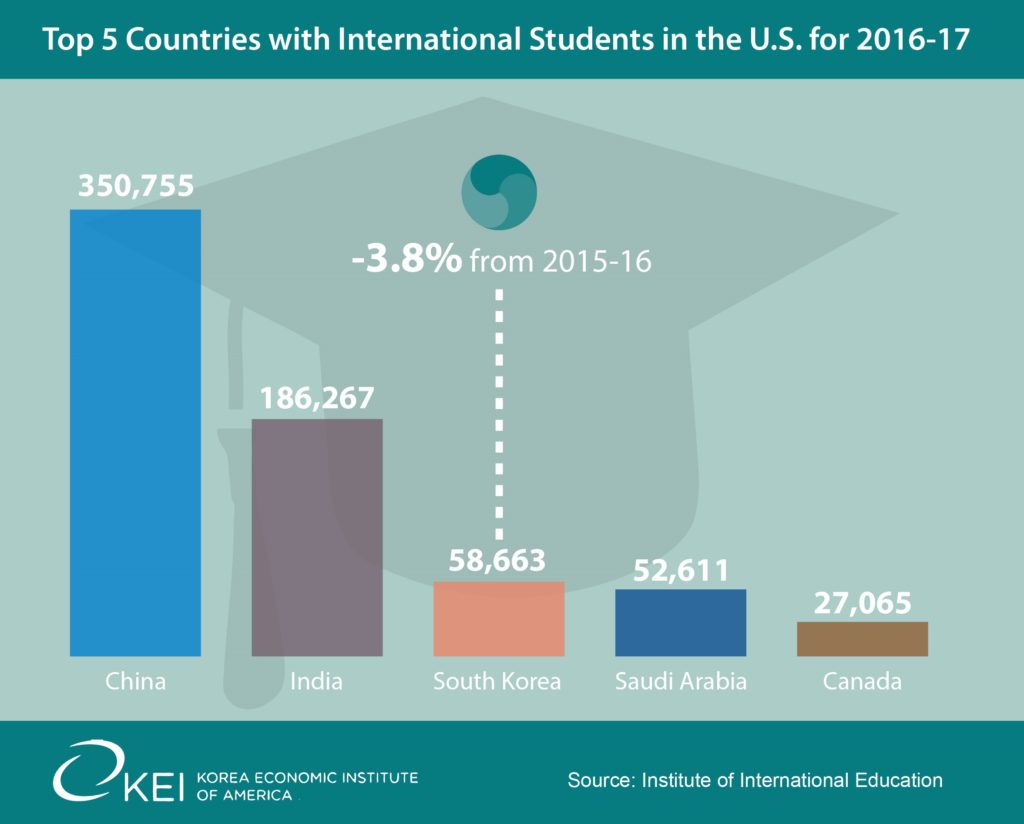The Peninsula
Korea Regains Spot as Third Largest Sender of Students to the U.S.

By Juni Kim
Despite the number of South Korean students studying in the United States dropping for the sixth year in a row, South Korea regained its spot as the third largest sender of students to America. In a report published today by the Institute of International Education, the previous third place holder, Saudi Arabia, had an even steeper drop in students studying in the U.S. over the past year. Saudi Arabia narrowly eked out South Korea for third place in last year’s report by 280 people.
After a decade of seeing steady increases starting in 1998, the number of South Korean students in the U.S. peaked in the 2008-2009 school year at more than 75,000 students. With only a brief rebound in 2010-2011, the number has consistently decreased since then, and the overall total has dropped by more than 16,000 from the previous high.

The continuing decrease of South Koreans studying in the U.S. reflects current domestic economic troubles for those wishing to study abroad. In addition to the money barrier for an expensive overseas education, a 2015 KEI blog post by Jenna Gibson also mentioned the growing accessibility to Korea-based branch campuses of American universities and the decreasing economic returns of a U.S. education as other factors for the dip in numbers of Koreans studying in America.
International students like those from South Korea have a positive economic impact on the American economy, with an estimated total contribution of $36.9 billion over the 2016-2017 school year. A 2016 Report by the Department of Commerce estimated that South Korean students added $2.3 billion to the economy in 2014.
With the current U.S administration’s focus on bolstering the American economy, it would be in the best interest for the U.S. to attract Korean students and indicate that not only is America open for business, but for education as well.
Juni Kim is the Program Manager and Executive Assistant at the Korea Economic Institute of America (KEI). The views expressed here are the author’s alone.
Image from ehpien’s photostream on flickr Creative Commons.
